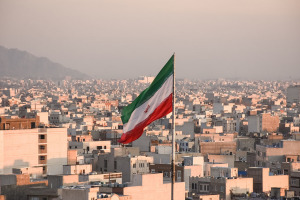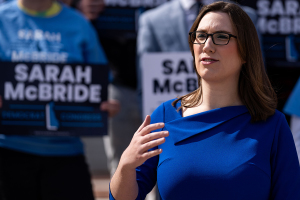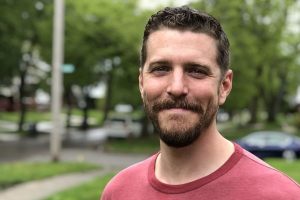A Christian's Concerns over King's Muslim Hearings
Congressman Peter King's hearings on Capitol Hill this week about the radicalization of American Muslims have been the subject of great controversy. Many people have called for him to cancel the hearings. As I see it, we don't need to spend our time and money on holding hearings about what we already know: yes, there are a handful of dangerous radicals among the millions of American Muslims. What we really need to focus on in these hearings is how we connect with the Muslim community in healthy ways that respect the law and don't lead to profiling. We have a responsibility to figure out how to keep our nation safe from the violent few without targeting the peaceful many.
This matters to me because I'm concerned about what kind of future am I creating for my children. I don't want them to inherit a country that's polarized on the basis of religion or treats one group as second-class citizens. We can't just keep putting off dealing with this like we did with the debt. I want to hand them a nation that doesn't put aside its ideals when the going gets tough. This matters to me because I'm an evangelical – that's the conservative Christian that believes the Bible is God's inspired word, that Jesus is the only way to God, that all men need to hear about His love and be given a chance to accept Jesus. How I treat people directly impacts how they respond to the Gospel message. I don't see Jesus yelling at anyone but his own religious tribe – he was very patient with others. I don't see Paul being hateful toward Jews or to Greeks, or anyone else for that matter. I've never known anyone to give their heart to Jesus because a Christian was mean-spirited and judgmental towards them or their religion.
This matters to me as an American who is very connected globally – as I write this I'm packing for a trip to meet Muslim leaders in the Persian Gulf. With 1.3 billion followers of Islam in the world, we have to relate to Muslims globally, and how we treat Muslims here in the US sets the tone. In addition, American Muslims are indispensible in defusing the challenges we face from the few Muslims here who do pose a threat.
So what would I recommend for solutions?
First, we need to reach out in a spirit of neighborly love. My wife has a multi-faith cooking group called Embrace that began a year ago with eight Christians, eight Jews, and eight Muslims. These women have come to love each other and treasure their time together. They share stories about their families, learn about each other's traditions and probably complain about their husbands a little bit. We've had the imam over for lunch, and next month I'm taking him turkey hunting. The point is, when you know someone it changes everything. You can't fear and love at the same time.
Second, we have to trust our laws and live up to our principles. If we build a climate of fear and suspicion based on religion we undermine our founding ideals and the impartial rule of law. I've heard some of our political leaders say when Saudi Arabia or Libya tolerate Christians and churches we will tolerate more Muslims and mosques. I submit that we should hold ourselves to higher standards than autocratic theocracies. We show our leadership not by stooping to their level, but by holding ourselves accountable for upholding a higher truth.
Third, we should focus on community development and service together. There are several projects members of my congregation do with Muslims, Jews, and others. We've renovated houses, provided tutoring, helped a family whose house burned down. Those things bring us together as a community. As we sweat together and get to know each other, our hearts are knit. As we come to be friends and our hearts are tied, then we can ask the most delicate of questions and not risk offending the other because we have confidence in our friendship.
Building such relationships requires intentional outreach. Here in Dallas a local rabbi, an imam and myself go out of our way to build these bonds. The results are relationships that strengthen our city without requiring us to compromise our beliefs. These bonds are valuable in and of themselves, and they also put the lie to propaganda claims that America hates Muslims. This might not attract as much attention as hearings in Washington, but it's a better way to show what we stand for as Christians and Americans.




























